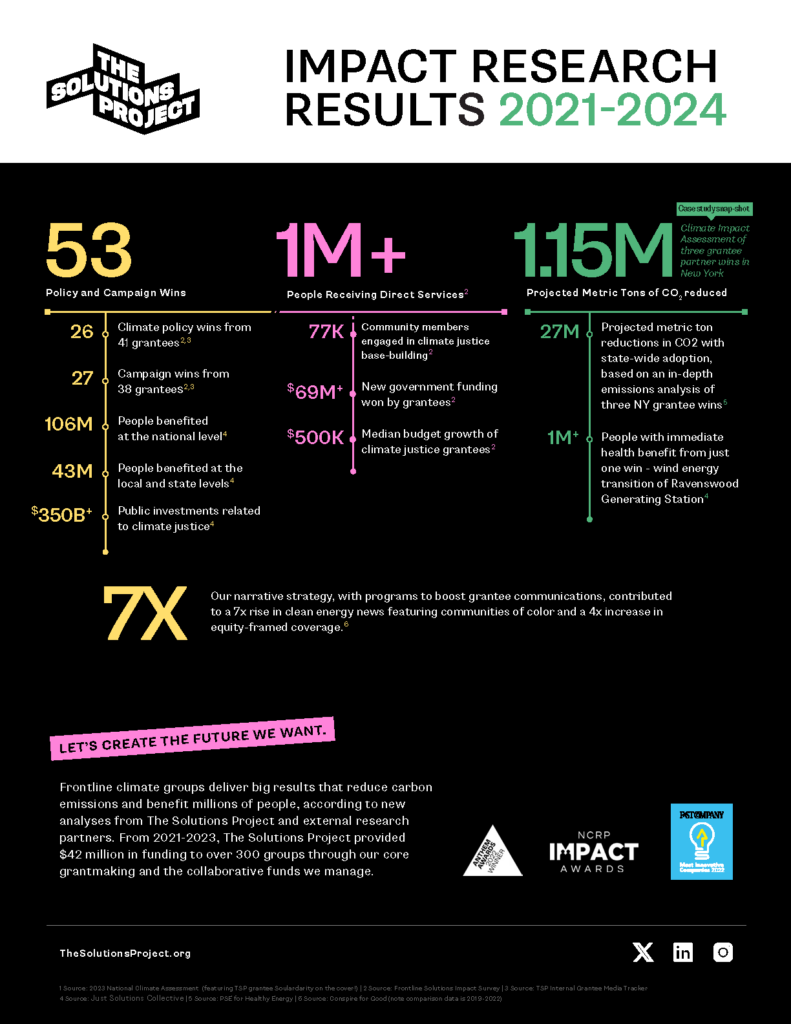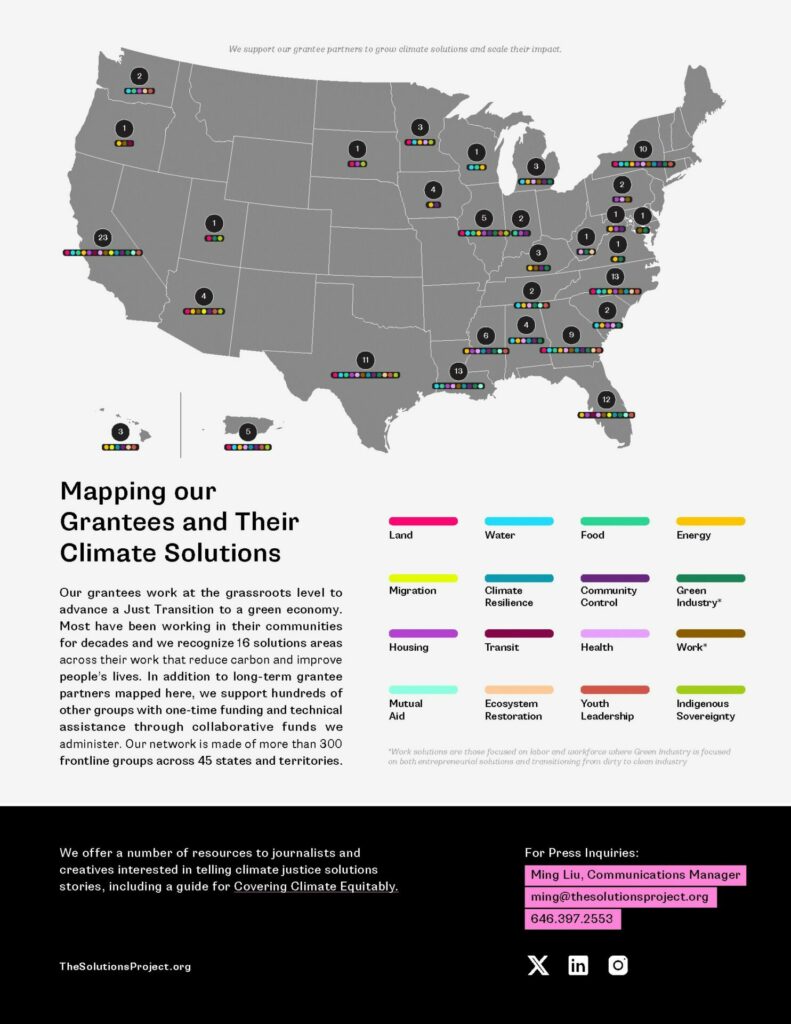Frontline environmental justice organizations are creating innovative policy solutions and are turning them into laws. Just Solutions and The Solutions Project (TSP), both national organizations teamed up to identify, compile, and illuminate some of their policy achievements over the past few years. Through this work, billions of dollars could benefit millions of people in frontline communities.
Our paper highlights 20 successful policy initiatives at the local, state, and federal levels over the past three years, from 2021 through 2023. The efforts highlighted in the paper are only a sample of the many identified gains. We selected a breadth and depth of wins to showcase success, and there are many more. We recognize that policy design, success, and implementation require many stakeholders to achieve impact, especially at the federal level. Each of the examples analyzed included the work of TSP-funded grassroots groups or alliances who are understood to have played a key and longer-term role within a broader set of stakeholders.
Key Findings
Overall, the analysis finds that the 20 policy achievements have the potential to:
- Benefit over 106 million people at the national level and over 43 million people at the local and state levels,
- Unlock over $350 billion in public investments.
The policy achievements cross climate justice issues, including clean energy, green jobs, pollution, and access to water. These successful efforts span the country, with a particular focus on model climate solutions in New York and California.
The policy successes highlighted in the paper include:
- Local Initiatives
- Oil and Gas Drilling Ordinances, Los Angeles, CA
- Strategic Miami Area Rapid Transit (SMART), Miami-Dade County, FL
- Rezoning and Permit Denials, South Louisiana Methanol, St. James Parish, LA
- Leading the Charge, New York, NY
- Renewable Ravenswood, New York, NY
- Ban on Combustion of Fossil Fuels in New Buildings, New York, NY
- Excessive Heat Swimming Pool Fee Waiver, Austin, TX
- Local Drainage Program Appropriation, Houston, TX
- State Initiatives
- Trees for Kids, AZ
- Storm Assistance for Undocumented Immigrants, CA
- Ban on Neighborhood Oil and Gas Wells, CA
- Climate and Equitable Jobs Act, IL
- Ban on Combustion of Fossil Fuels in New Buildings, NY
- Build Public Renewables Act, NY
- New York State Climate Action Council Scoping Plan, NY
- Healthy Environment for All (HEAL) Act, WA
- Federal Initiatives
- Extreme Heat Executive Action
- Tribal Co-Management of Federal Lands
- Justice40 Initiative
- Inflation Reduction Act
For each policy initiative, Just Solutions assessed:
- The number of people who can benefit or are benefiting
- The specific kinds of benefits or outcomes for people and the planet that can be expected from each initiative
- The broader impact or significance of the climate policy success as a model or tipping point for other geographies or levels of government policy-making
Conclusion
The policy achievements showcased in the study would not have been possible without the years of organizing and advocacy from frontline, environmental justice, and justice-centered organizations. From our analysis, these 20 policy achievements add to our broader understanding of climate policy innovations taking shape within frontline communities. The leadership of these communities in the climate justice movement is resulting in the enactment of policy at the local, state, and federal levels. This impact is seen and felt across the country, and all sectors of work, including energy, housing, and health. These policy models reflect a commitment to reducing greenhouse gas emissions and improving the health and welfare of community members. The climate solutions presented demonstrate why it is imperative that those on the frontlines of climate impacts are positioned and effectively resourced to lead the movement and drive decision-making.


